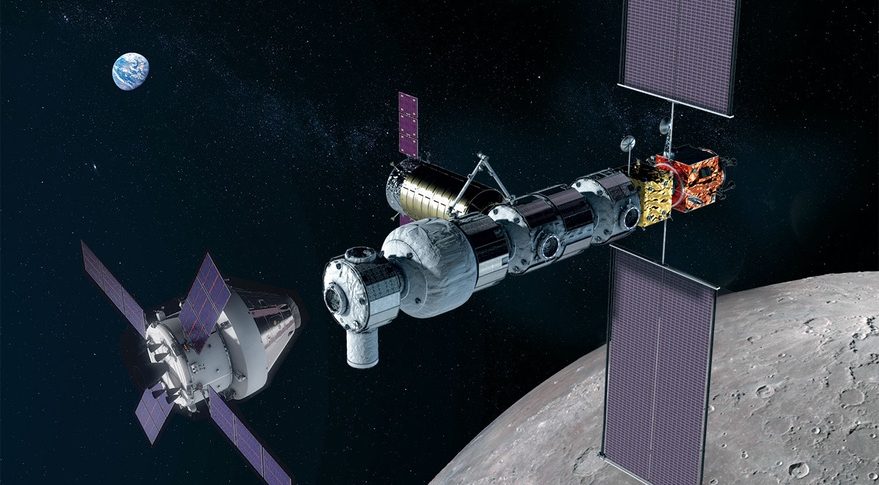NASA Announces New Moon Flight

People will walk again on the surface of the moon - for the first time since 1972. The US National Aeronautics and Space Administration reported on plans for a new manned mission. So far, the super-specific details with dates have not been disclosed, the general message is simply "we will do it."
The American Internet is sobbing with happiness . But, unexpectedly, among the experts there were many dissatisfied. When NASA plans were announced before the advisory panel on November 15, the advisers split into two groups. On the one hand, proposals to accelerate the program (otherwise, God forbid, China will overtake). On the other - stories about the unrealistic and costly project, especially in terms of building a permanent station Gateway in the lunar orbit.
At a meeting of the advisory group at NASA headquarters, Tom Cremins, head of the agency’s strategic plans, outlined the goals and order of the new Research Campaign, as it is called so far.
As part of this campaign, it is planned to build a Gateway orbital station with NASA modules and international / commercial partners. Descent vehicles will also be developed to transport people to the satellite surface. Their testing on the moon is scheduled to begin until the 2024th.
NASA also presented a slide of what is expected to be achieved by 2028. Including - at least 7 missions to the Moon, a fully built Gateway, a riding rover, 4 exploratory missions on the lunar surface and 3 commercial flights. The trigger module will be reusable. According to Tom Cremins, the plan can still change, it all depends on the money. But if the NASA budget remains stable, "we are confident that we can do all this."

Comments of advisers are divided. Eileen Collins, a former astronaut, the first female commander of the Shuttle, says the plan is “not ambitious enough”:
2028 is in as much as 10 years. I think it's too long. We can do it before.
Harrison Schmitt, an astronaut on the Apollo 17 moon expedition, was also not thrilled:
There is no sense of urgency. We need to feel that, here, this will happen soon. This will not happen soon. The pace of this program is too slow. I remember the Saturn 5 launches every two months, and you could barely run them every two years.
Apollo 11 and the second man on the moon, Buzz Aldrin, spoke out against the space station:
I don't like Gateway at all. It is absurd that we will use a similar platform to launch human and robotic missions on the surface. Why do we need to launch a command to some intermediate remote point in space in order to descend from there then? We could do without it in the 70s.
According to Aldrin, he likes the Moon Direct concept, proposed by engineer Robert Zubrin, famous for his books in support of the Martian missions. According to the plans of Zubrin, the landing capsules can fly from the station near the Earth's orbit to the lunar / Martian surface, and then back. So, he counted back in the 1990s, the energy costs of building an orbital station would be much lower.
NASA 's promo video yesterday , look inspire
Mike Griffin, the former head of NASA, who now leads research and development for the US Department of Defense, did not participate in the meeting. But a few hours after that, the journalists' questions about the new lunar mission answered:
I think 2028 is very late, it is not even worth discussing. It's my personal opinion. Such a date does not show the world that the United States is leading here in some way.
A little later he added:
In my opinion, if China seriously wants to deliver people to the moon, they can easily do it in six, seven, eight years, no problem. But they are not in a hurry, they play long. I do not say that they will be on the Moon in six years, but if they have a task to prove to us, they will do it. I think that such an event will cause a restructuring of geopolitical forces, and this would be extremely harmful for the United States.
So far, China has not sent people beyond Earth's orbit: its program was focused on building its space station by the mid-2020s. But Mike Griffin probably understands what he is talking about. When he was the head of NASA, it was he who in 2007 announced that the Americans would return to the satellite again by 2020. Then such plans were quickly canceled by the Obama administration in 2010. Trump also shows no particular interest in the country's space projects. There is no general consensus among experts - until the president is as keen on the idea of a flight to Mars or the Moon as Kennedy used to be, you should not expect any really decisive breakthroughs.

